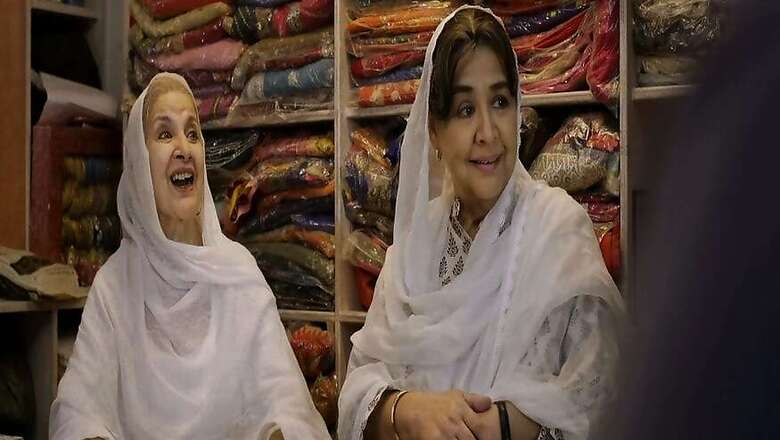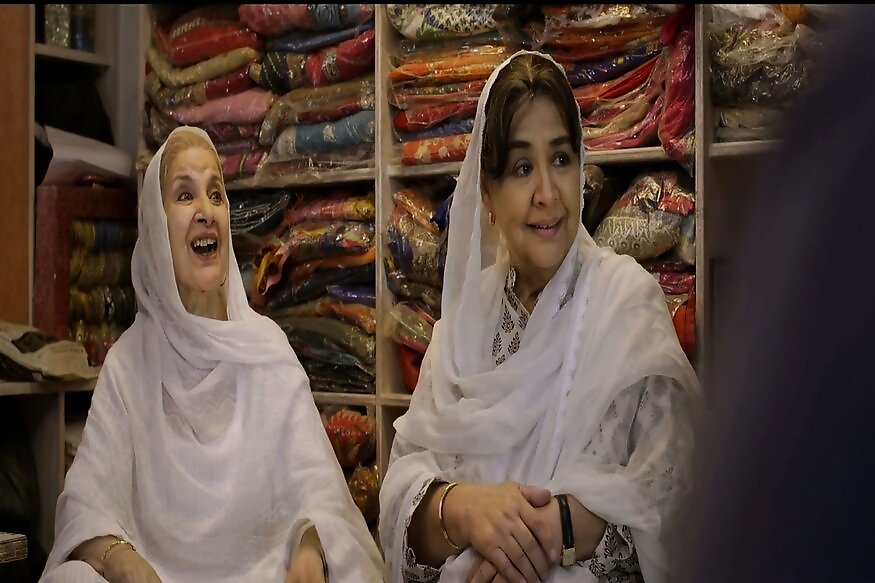
views
Patriarchy comes in all shapes and sizes and in all cultures and religions. The gender-bias, too, doesn't need a religion, a caste or a specific household, to mount itself on, but continues to exist everywhere.
Zain Anwar's short film titled Mehram brings to the fore the reality and challenges of an existing Saudi Arabian law wherein women are forbidden to perform the Hajj, the annual pilgrimage to Mecca, without a 'Mehram' (a male blood relative).
"Despite being a practicing Muslim, I was unaware of this law. It made me research more about it and I soon realized that the law had very weak social and religious relevance in the modern world. I read a story about a certain woman from Kerala who had challenged the law in the High Court," shares Zain.
Zain continued to believe in the script even though it was initially written as his diploma film and held onto it until he finally realized it in a powerful short, starring Farida Jalal, Sushma Seth and Rajit Kapoor. Mehram is the story of Aamna, played by the talented Farida, who challenges the patriarchal system to claim her right to perform the Hajj.
"Well, external producers rejected the film as our diploma project. Somehow, I believed in the script and I held on to it. Later, my colleagues Shweta and Gaurav spoke about the script. I started re-working it," he says.
Zain sheds light on what went behind convincing the protagonists and how everything else fell into place, saying, "It was one of those dreamy discussions that filmmakers often have. We were just imagining, “Oh what if Farida Jalal did the film” and this and that."
His colleagues then went on to speak to thespian Farida and convinced her to hear the narration. "Initially we were so scared, but she made us comfortable in her house. We narrated the film to her and Farida aapa agreed to do it. We then narrated the film to Rajit Saab and Sushma ma'am and somehow all of them agreed without any problems."

"It was just a lot of dots connecting on their own. Or God’s will as I would like to say," says the young filmmaker.
Given that the three of them are stalwarts in their own rights, Zain admits that the cast and crew were intimidated in the beginning.
"They were extremely supportive of our efforts, guiding us all through. There was a genuine sense of respect and admiration for them. And I guess that is what made the difference in the way we worked with them. The respect was genuinely for their art, their experience. We treated them as our seniors and I think it showed," he explained.
At a time when everything is blown out of proportion and art often finds itself at the receiving end of political ideologies, one would expect a filmmaker to bear some apprehensions in mind. But Zain makes it clear that a filmmaker can only put in his best, while not controlling the reactions.
"Naturally when you are making a point, that too in the current political and cultural climate of the country, you will get a reaction," he says.
Zain further shares that the idea is to start a conversation and if that's achieved, half the battle is won.
"The film is nowhere critical of any religion or thought process, the film is critical of patriarchy and patriarchal interpretations of religious texts and laws," he notes.
The film, which has received a standing ovation at the 5th edition of the Woodpecker International Film Festival held in the capital, also closes the Delhi International Film Festival.
On being asked if art ends up being a soft target for many political propagandas, Zain shares, "Artists and governments have never really been in love with each other. The godfatherly approach of the government subtly forces several communication outlets to carry out government propaganda. And in my opinion, artists must always be critical of the establishment."
"Have you ever seen a government advertise the aspects where they have failed? It is our job as artists and people who have skillset and communication abilities to talk about that. However, a nation must progress, it must always have those voices of criticism that will make it better," he adds.
The filmmaker is hopeful that whatever voices they are raising through the film and the opinions that other filmmakers are raising will eventually be heard.


















Comments
0 comment